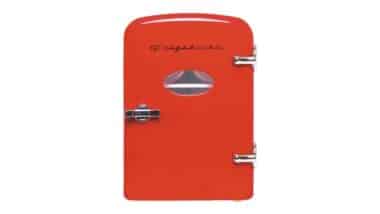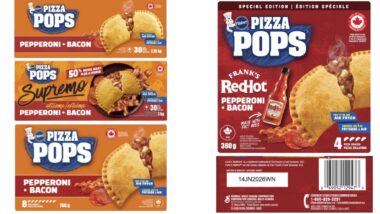Electronic Arts was hit with a class action lawsuit on Sept. 30, alleging the company’s practice of selling randomized “loot boxes” for profit constitutes an illegal gambling business in Canada.
Plaintiffs Mark Sutherland and Shawn Moore filed the EA Games class action lawsuit against Electronic Arts Inc. and Electronic Arts (Canada) Inc. They claim the defendants knew that the loot box enterprise was illegal and “wilfully concealed” its unlawful nature from customers.
Class Action Lawsuit: Loot Boxes Exploit Players
According to the EA games class action lawsuit, the video game industry is a multi-billion-dollar industry that includes children and adults as players.
“As video game developers and publishers have sought to monetize their products, they have increasingly employed addictive game elements including so-called ‘loot boxes’ to compel players to spend more time and money in their games,” the EA Games class action lawsuit states.
“A loot box is a game of chance inside a video game, by which a player pays for a digital ‘roll of the dice’ and the possibility of obtaining desirable virtual rewards,” the plaintiffs explain in the complaint.
Loot boxes can reportedly be purchased with real money, virtual currency that was purchased with real money, or they can be “unlocked” using a virtual “key” that was purchased with real money. The plaintiffs assert that video game publishers have reaped hundreds of millions of dollars from the “exploitation of players” through the sale of loot boxes.
Class Action Lawsuit: Loot Boxes Constitute Unlawful Gaming
Sutherland and Moore claim that EA’s practice of selling loot boxes violates the Criminal Code of Canada, which prohibits unlawful gaming, betting, lotteries and games of chance. The EA games class action lawsuit accuses the defendants of operating “an unlicensed, illegal gaming system” through the sale of loot boxes.
The plaintiffs note that digital games began to be offered in the early 2000s with online components available to download from the internet. Video game publishers took advantage of this technology and sold expansions or add-ons to existing products for customers to purchase.
“By the mid-2000s, publishers were offering extensive add-ons, including downloadable content ‘packs’ that would change the appearance of a player’s in-game character — for a price,” the EA Games class action lawsuit says. “This process of financial engineering is generally referred to as ‘game monetization’.”
The digital game market continued to expand, creating more competition for players’ attention.
“One innovation developed by publishers to both keep players’ attention and to extract additional revenue was the loot box,” the EA Games class action lawsuit says. Loot boxes can be “opened” to reveal a randomized selection of virtual items, such as customization options for a player’s character, additional characters, or game-changing equipment.
“Purchasing the right to open a Loot Box is a bet — a game of chance,” the EA Games class action lawsuit says.
According to the lawsuit, loot boxes contribute to a compulsion loop that is designed to keep players invested in a game.
“Such compulsion loops are known to contribute towards video game addiction and are frequently compared to gambling addiction,” the EA class action lawsuit says. “This is in part due to the use of a ‘variable-rate reinforcement schedule’ similar to how slot machines dole out prizes and it is especially dangerous for children.”
The plaintiffs allege that the purchase and opening of a loot box, which includes an unknown item that has monetary value, constitutes a “bet” and is considered illegal under the laws of Canada.
They note that some loot boxes are free to play, but that those types of loot boxes are not at issue in their EA Games class action lawsuit.
Class Includes Canadians who Purchased Loot Boxes Since 2008
Sutherland and Moore filed the EA Games loot boxes class action lawsuit on behalf of themselves and a proposed Class of Canadian customers who purchased loot boxes in any of the following Electronic Arts games since 2008:
- FIFA (gaming years 2009 through 2021)
- Madden NFL (gaming years 2010 through 2021)
- NHL (gaming years 2011 through 2021)
- NBA Live (gaming years 2014 through 2019)
- UFC 2
- UFC 3
- Apex Legends
- Battlefield 4
- Battlefield Hardline
- Battlefield 1 (2016)
- Dragon Age: Inquisition
- Mass Effect 3
- Mass Effect: Andromeda
- Need for Speed: Payback
- Plants vs Zombies: Garden Warfare
- Plants vs Zombies: Garden Warfare 2
- Star Wars: The Old Republic
- Command & Conquer: Rivals
- Heroes of Dragon Age
- Plants vs Zombies 2: It’s About Time
- Star Wars: Galaxy of Heroes
- The Sims Mobile
- WarFriends
The plaintiffs note that other games developed and published by the Electronic Arts defendants may also qualify.
The plaintiffs are represented by Mathew P. Good of Good Barrister and Anthony Vecchio QC of Slater Vecchio LLP.
The EA Games Loot Box Class Action Lawsuit is Mark Sutherland, et al. v. Electronic Arts Inc., et al., Case No. S-209803, in the Supreme Court of British Columbia, Canada.
ATTORNEY ADVERTISING
Top Class Actions is a Proud Member of the American Bar Association
LEGAL INFORMATION IS NOT LEGAL ADVICE
Top Class Actions Legal Statement
©2008 – 2026 Top Class Actions® LLC
Various Trademarks held by their respective owners
This website is not intended for viewing or usage by European Union citizens.

















One thought on EA Games Served Class Action Lawsuit Over Selling Loot Boxes
Is ea still being sued?
And how do I get in?